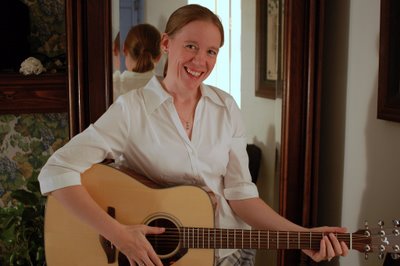WHOOT!!!!
Let me tell you, there were many times that I was ready to quit. In fact, the only reason I got to this point is because my husband wouldn't let me quit, no way, no sir, no how. He's worked me through quite a few temper tantrums, nervous breakdowns, and icky dark depressive moments. God bless him! And, he's corrected a few split infinitives, misspellings (I some how always wrote asses instead of assess), and the like.
there's lots of work to be done, but the hard part is past. The rest (I'm hoping) is just clean up. Getting this thing down on paper was enough to send me over the edge permanently. Here's a clip from Chapter One:
Let all the world in ev’ry corner sing,
My God and King!
The heav’ns are not too high,
His praise may thither flie:
The earth is not too low,
His praises there may grow.
Let all the world in ev’ry corner sing,
My God and King!
The church with psalms must shout,
No doore can keep them out:
But above all, the heart
Must bear the longest part.
Let all the world in ev’ry corner sing,
George Herbert, in his poem, Antiphon, speaks a truth that resonates within me – “The church with psalms must shout, no doore can keep them out.” When I imagine a church whose doors are busted open by shouted psalms, I see a group of people, working together, joyfully and busily worshiping, focused as one on a single task – praising God (Neh. 8:5-6). The congregants come to worship with intention, expecting to encounter the living God. Their worship is not unlike the stories of the people of God in the Bible who encounter God in a physical, tangible way, leaving with their lives changed (Acts 2:1-4). My imaginary congregation worships as a community, their services are rich with symbols and deep with meaning, each person bringing their unique gifts to the table. The work of this congregation is in response to God’s call on their lives, full of thanksgiving for the gift of Jesus Christ and empowered by the Holy Spirit. With the focus I imagine in that church, there is no room for individuals to wait around for someone else to do the praising. Missing from this congregation is a “what’s in it for me” attitude. Each member is a minister in the royal priesthood (1 Pet. 2:9). The leaders are not priests, doing the work on behalf of the congregation, but encouragers and equippers, helping each person fulfill their ministry for the edification of the Church, and most importantly for the glory of God.
When we practice full participation in worship we learn how to fully participate in life. When we practice giving all of ourselves to God in worship, we learn how to give all of ourselves to God in all of life. Worship is first and foremost about and directed to God (scriptural reference). What we “get out of it” in terms of good feelings or self-improvement should not come into play. The benefits we derive from worship are ultimately not for our use or purpose, but for God’s glory. The act of remembering by practicing God’s story in worship helps us to live lives that are pleasing to God. That kind of life is joyful and rewarding for sure, but those aspects are tangential benefits to their ultimate purpose of glorifying God.

